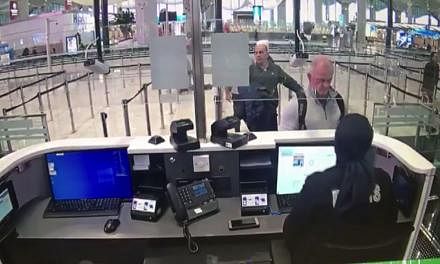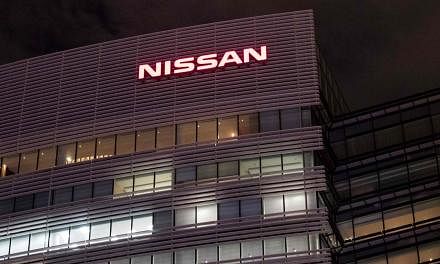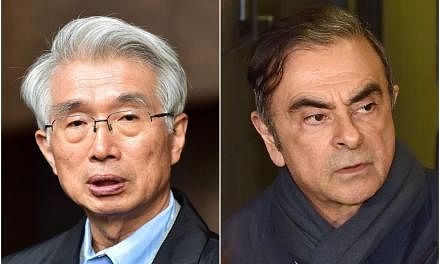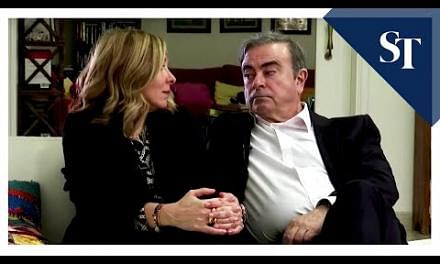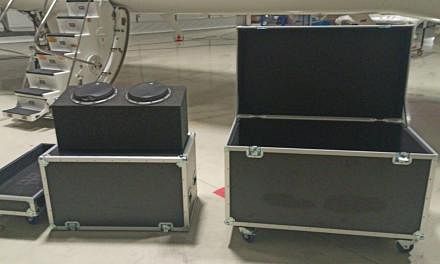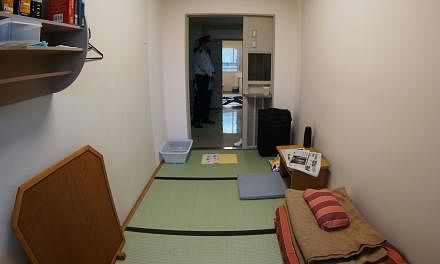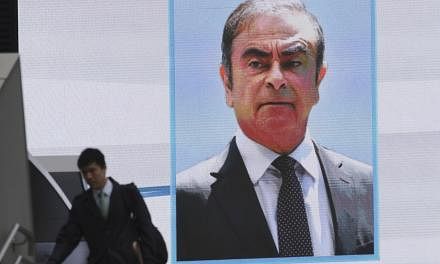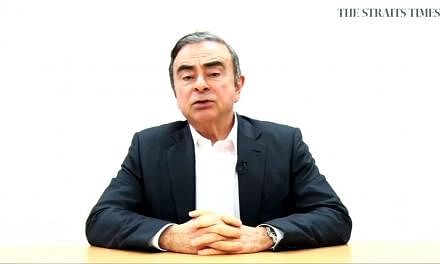BEIRUT (REUTERS, AFP, AP) - Lebanon received an Interpol arrest warrant on Thursday (Jan 2) for fugitive former Nissan boss Carlos Ghosn, while Turkey launched an investigation into his daring escape from Japan.
Ghosn, 65, has become an international fugitive after he revealed on Tuesday (Dec 31) he had fled to Lebanon to escape what he called a"rigged" justice system in Japan.
The Interpol red notice was received by Lebanon's internal security forces and has yet to be referred to the judiciary, a Lebanese judicial source told Reuters.
A senior Lebanese security official said it was not yet clear if Ghosn would be summoned for questioning over the warrant, but noted that Lebanon does not extradite its citizens to foreign states.
The Interpol-issued red notice is a non-binding request to law enforcement agencies worldwide that they locate and provisionally arrest a fugitive. A red notice is not an arrest warrant and does not require Lebanon to arrest Ghosn.
In past cases, where Lebanon has received red notices for Lebanese citizens resident in the country, the suspects have not been detained, but their passports have been confiscated and bail has been set, the judicial source said.
Ghosn holds French, Lebanese and Brazilian citizenship. He has deep ties to Lebanon, the country of his childhood, where his investments include a stake in a bank, real estate and a vineyard.
Sources close to Ghosn said he met with Lebanese President Michel Aoun shortly after arriving to Beirut and was greeted warmly, though the presidency denied such a meeting took place.
Speaking to broadcaster MTV, caretaker defence minister Elias Bou Saab said Lebanon played no official role in Ghosn's exit from Japan.
Ghosn was smuggled out of Tokyo by a private security company, a plan that was in the works for three months and involved transit through Turkey, Reuters has reported.
TURKEY DETAINS 7 OVER GHOSN'S ESCAPE
Turkish police on Thursday detained seven people, including four pilots, as part of an investigation into Ghosn's passage through the country, a police spokesman said.
She said the other detainees were two airport ground staff and one cargo worker and all seven were expected to give statements in court on Thursday.
Flight tracking data suggests Ghosn used two different planes to fly to Istanbul and then to Lebanon.
Sources close to Ghosn said he decided to flee Japan after learning that the second of his two trials had been delayed until April 2021, and also because he had not been allowed to speak to his wife as part of strict bail conditions.
"They said they needed another whole year to prepare for it... He was distressed about not being able to see or speak to his wife," one of the sources close to Ghosn said.
He was first arrested in Tokyo in November 2018 and faces four charges for alleged financial crimes including hiding income and enriching himself through payments to car dealerships in the Middle East. He denies the charges.
Japanese public broadcaster NHK said on Thursday Japanese authorities allowed Ghosn to carry a spare French passport in a locked case while out on bail, potentially shedding some light on how he managed to escape despite having passports held by Japanese lawyers.
No one was immediately available for comment at the office of Ghosn's lawyer, Junichiro Hironaka, or at the French embassy in Tokyo, or at the Tokyo District Public Prosecutors Office.
'ILLEGAL' TRIP
Separately, Lebanese lawyers on Thursday filed a report to the judiciary demanding Ghosn be prosecuted over a trip he made to Israel as Renault-Nissan chairman in 2008.
Ghosn had travelled to Israel in 2008 to support a partnership with Shai Agassi, an Israeli entrepreneur who had launched an ill-fated electric vehicle venture called "Project Better Place".
Three lawyers "submitted a report to the public prosecutor against businessman Carlos Ghosn for the crime of having entered an enemy country and violated the boycott law", the state news agency reported.
They said several contracts had been signed during his January 2008 trip and added that Ghosn had taken part in several economic conferences.
"Doing business with Israel is not a matter of opinion - any normalisation is forbidden by law," Hassan Bazzi, one of the lawyers, told AFP.
Lebanon is technically still at war with Israel, which occupied the south of the country until 2000, and forbids its citizens from travelling there.
"Where were the public prosecutor and general security when Ghosn visited Lebanon, after he travelled to occupied Palestine and was photographed there?" Bazzi asked.
General security is Lebanon's main intelligence agency, which routinely investigates Lebanese citizens suspected of ties with Israel.
"Lebanon prosecutes poor people while those who have earned millions by investing with the enemy are treated as national heroes," Bazzi said.
In 2017, French-Lebanese filmmaker Ziad Doueiri was arrested and briefly questioned for filming part of his film The Attack in Israel.

